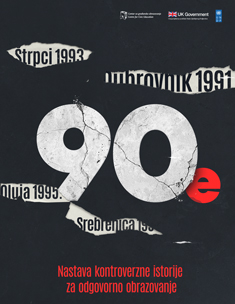
Ratom protiv kulture
Samoprocjenjivanje se vrši kroz stalno postavljanje pitanja, “konferencijom” putem diskusije razmjenjuju znanja i razumijevanja, dok se kroz konceptualne mape dolazi do razumijevanje ideja i odnosa među idejama.
More...We kindly inform you that, as long as the subject affiliation of our 300.000+ articles is in progress, you might get unsufficient or no results on your third level or second level search. In this case, please broaden your search criteria.

Samoprocjenjivanje se vrši kroz stalno postavljanje pitanja, “konferencijom” putem diskusije razmjenjuju znanja i razumijevanja, dok se kroz konceptualne mape dolazi do razumijevanje ideja i odnosa među idejama.
More...
Vrednovanje kroz odgovore i komentare učenika/ca tokom časa, kao i kvalitet eseja.
More...
Postignuća se mogu pratiti na osnovu aktivnosti učenika/ca i njihovih odgovora na času, kao i procjenjivanjem prepoznavanja značaja i vrijednosti kulturne baštine na drugim primjerima u eseju.
More...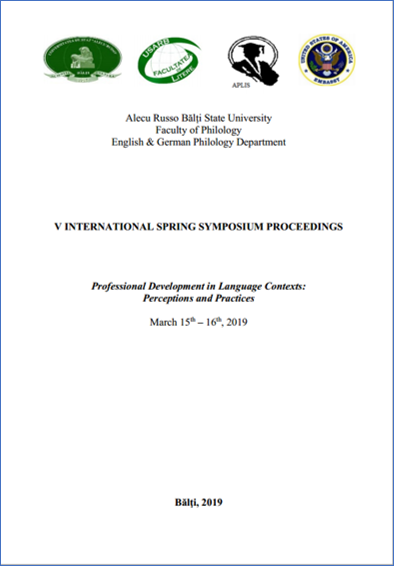
The article examines the sometimes confusing use of the terms competence and skills in the Moldovan language education context. Teachers of English as a foreign language seem to closely follow the guidelines of the national curriculum, which does not seem to facilitate the teachers’ work in their design process. The fact that the term competence is opposed to that of skill in TEFL literature seems to be ignored by the authors of the curriculum. Thus, teachers feel forced to use the exact terminology from the curriculum, even if it can cause confusion.
More...
The article is devoted to the problem of intellectual development of children of preschool age in the process of studying folk riddles. The author reveals the concept of "riddle", highlights the principles of the selection of riddles and groups of riddles that are used in pre-school. The work details the methods of work: a) with riddles – descriptions, b) with riddles containing the key distinguishing feature of the object, c) with riddles in which the description of the object is given through negation; it proved that the effectiveness of this technique has a positive effect on children's intellectual development.
More...
The article deals with the application of English proverbs and sayings for effective teaching of English Methodology. The author suggests applying them for mastering the principles of teaching in general as well as teaching English language in particular since proverbs describe the millennium-long experience of people, reflect valuable pedagogical ideas. The main focus of the author is to consider a large number of English and Ukrainian proverbs, to select the ones that concern pedagogical approaches to teaching, and to group them according to the principle mentioned. The examples also include some Ukrainian and Russian proverbs as well as English quotation when it is appropriate. Following the classification of principles developed by A.N. Shchukin, one to twelve examples are selected to exemplify each principle. The principles of teaching are of four groups: didactic (10 principles), psychological (4 principles), methodological (5 principles) and linguistic ones (3 principles). In the course of the study we came to the following conclusions: there is a large number of proverbs on pedagogical and methodological principles, the use of proverbs leads to the development of abstract and associative thinking of would-be teachers. The author claims that proverbs should be widely used in lecturing and suggests a range of tasks for students: using a proverbs give some advice to a pupil, pupil’s parents or a colleague, explain a proverb, share your school experience using a proverb, express you agreement or disagreement with a proverb, choose a proverb with a different meaning, find Ukrainian or Russian equivalents for an English proverb, discuss the relevancy of a proverb to modern conditions, match a proverb to a principal it describes.
More...
The following article examines two important components to aid students develop their English language oral skills and to enhance their understanding of literature and thinking skills. The first component is the use of the Question and Answer Relationship Format to help teachers elicit appropriate questioning and use strategies to understand literature and nonfictional text in a deeper fashion. The second component is the use of Literature Circles. This strategy, widely used in the United States, allows students to read fictional texts and discuss in depth all the components of a literary piece. Consequently, this technique also triggers students’ oral skills while in the classroom. Such a method is ideal for English Language Learners from an intermediate to an advanced and near proficient levels in any educational context. Thus, the authors also share insights from their own classroom experience while using the aforementioned techniques.
More...
The article describes the relationship between language and culture as well as the ways of discussing about cultural identity and cultural diversity at EFL classes to university students. The author offers an analysis of researchers' views of the interaction between culture and language and suggests some practical ideas for intercultural dialogue at EFL classes. The author of the article highlights the idea that knowing the language gives an appearance of understanding people of different cultures but does not give a sufficient knowledge about the foreign culture. Taking into account that verbal as well as nonverbal communication involves much more than transmitting a particular message and it reflects everyone's identifications, keeping their cultural values, the author of the article suggests several practical ideas for EFL classroom to provide a real interaction between cultures through comparison of different cultural values.
More...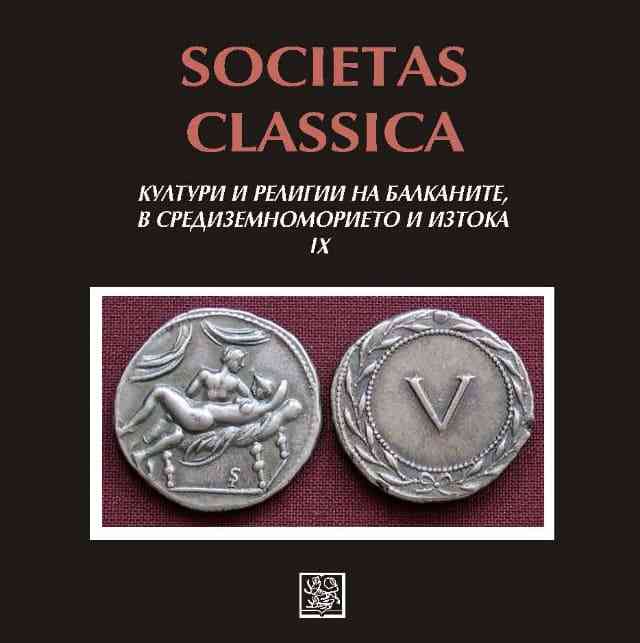
The present study deals with an important point in the history of the educational activities in the old capital city of Turnovo, namely the opening of a Hellenic school in 1821. The analysis of the data of its chronicle reveals the significant role of the Orthodox clergy, headed by the bishop of Turnovo, in relation to the establishment, organization and maintenance of the school. By the middle of the 19th c. it was not only the most authoritative centre of education in the city but it also had a leading role in the public and economic life of the Bulgarians.
More...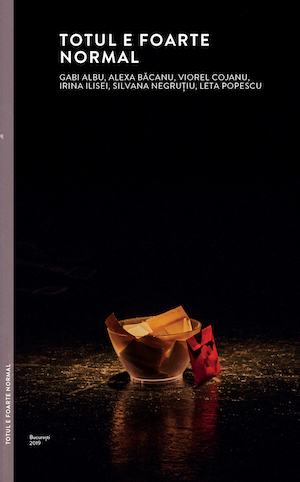
Îmi amintesc cum stăteam la Replika în curte și eram bombardată cu idei. Era începutul rezidenței mele, alături de dramaturga Alexa Băcanu. Apucasem să expun doar câteva lucruri la care mă gândisem: tema educației sexuale în România și comunicarea între părinți și copiii lor.
More...
Și de aici a început documentarea. Știm că în școală nu se întâmplă de obicei, dar într-un fel sau altul, tinerii află totuși despre sex. Care sunt sursele? Sunt ele de încredere? Le oferă toate informațiile necesare? La nivel de țară, răspunsul la ultimele două întrebări e nu. Suntem pe primul loc în Uniunea Europeană la numărul de mame minore. Ăsta e unul dintre primele lucruri pe care le-am aflat în timpul documentării.
More...
“Totul e foarte normal” nu beneficiază de un decor în sensul comun al cuvântului, ci de o configuraţie a spaţiului de joc și un raport între acesta şi auditoriu, care determină şi servesc conceptului spectacolului. Tema de la care am plecat a fost declanşarea comunicării pe teme tabu între generaţii într-o formulă ludică, prietenoasă şi jovială cu care să rezoneze ambele categorii de vârstă.
More...
„Nu, nu am vorbit încă, să nu îi dau idei” sau „Acum au internet, știu ei mai multe ca noi” – acestea sunt două argumente între care oscilează scuzele adulților pentru a evita tematica educației sexuale – fie ei părinți, cadre didactice, directori de școli sau autori de programe școlare. Dacă în toate țările dezvoltate, educația sexuală se predă în școli de zeci de ani, în România, educația sexuală nu se predă decât opțional în cadrul materiei Educație pentru sănătate. În 2016, numai 2.000 dintre cei 19.000 de directori le-au propus părinților să-și trimită copiii la aceste ore. Pentru mulți adulți este dificil de acceptat trecerea de la copilărie la adolescență, faptul că tinerii devin ființe de sine stătătoare care își fac propriile alegeri, inclusiv în ceea ce privește sexualitatea.
More...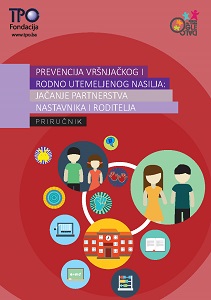
Jedno od najvažnijih pitanja suvremene nastave je pripremiti, omogućiti i realizirati suradnju škole i obitelji. Škola kao odgojno-obrazovna ustanova i specifičan oblik organizacije, posljednjih godina radi na osnaživanju i modernizaciji rukovodstva s ciljem usklađivanja ljudskih, fizičkih i financijskih potencijala. Modernizacijom obrazovnog sustava rukovodstvo daje sve veći značaj izgradnji kooperativnih odnosa vezanih za školu, suradnji škole sa roditeljima i širom društvenom zajednicom. Kako je ukupan obrazovni sustav praktično pred vratima reformskih procesa, tako je pred rukovodstvom veliki zadatak iznaći adekvatna rješenja za stvaranje demokratične škole po mjeri djeteta, izgradnju harmoničnih, suradničkih odnosa za rad i kontinuirano razvijanje partnerskih odnosa sa roditeljima i širom društvenom zajednicom.
More...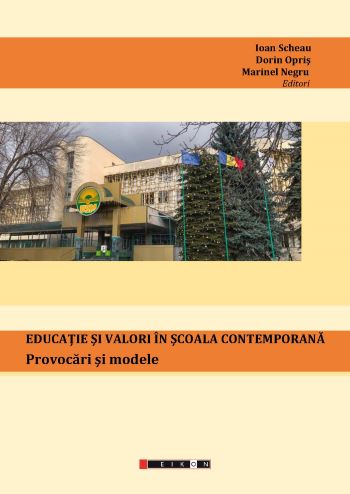
The claim of morality in the existence of individuals and groups is a natural constant of all times. The materialization of moral conduct requires both subjective instances established at the level of each individual (such as moral conscience) and external benchmarks. The present study finds out the diversity and complementarity of external sources for optimizing the regulation of moral agents’ actions: regulatory documents (such as codes of ethics/ deontology/ codes of conduct or behaviour), individuals or groups of individuals responsible for supervising/ supporting the moral and ethical quality of professional activities (such as ethics counselors or ethics committees), institutions and their actions. In addition, the study points out the characteristics of some sources of optimization, respectively, of the ethics counselor, integrity advisor, the ombudsman, according to the provisions of the Romanian legislation. The components shown are also relevant to the sphere of educational action.
More...
Taking an overview of the context in which we live our lives, we can easily observe that we are constantly facing the challenges of a changing world. Particularly in the case of young people, we notice prominent differences, primarily because they belong to the generation of modern technology and the virtual world. We are witnessing a rapid transition from face-to-face human interactions to the digital universe, through the use of tablets and smartphones, where time and space take on new meanings, and interpersonal relationships may not be as effective and transparent. The religious aspect justifies its importance within the spectrum of educational sciences by addressing the need for meaning in life, which in turn contributes to a sense of security and self-esteem as a protective factor for individuals. In the current context, marked by cultural and religious diversity, religious sensitivity in education prepares the younger generations to transcend their own boundaries. It becomes a gateway to understanding religious diversity and the experiences that stem from it.
More...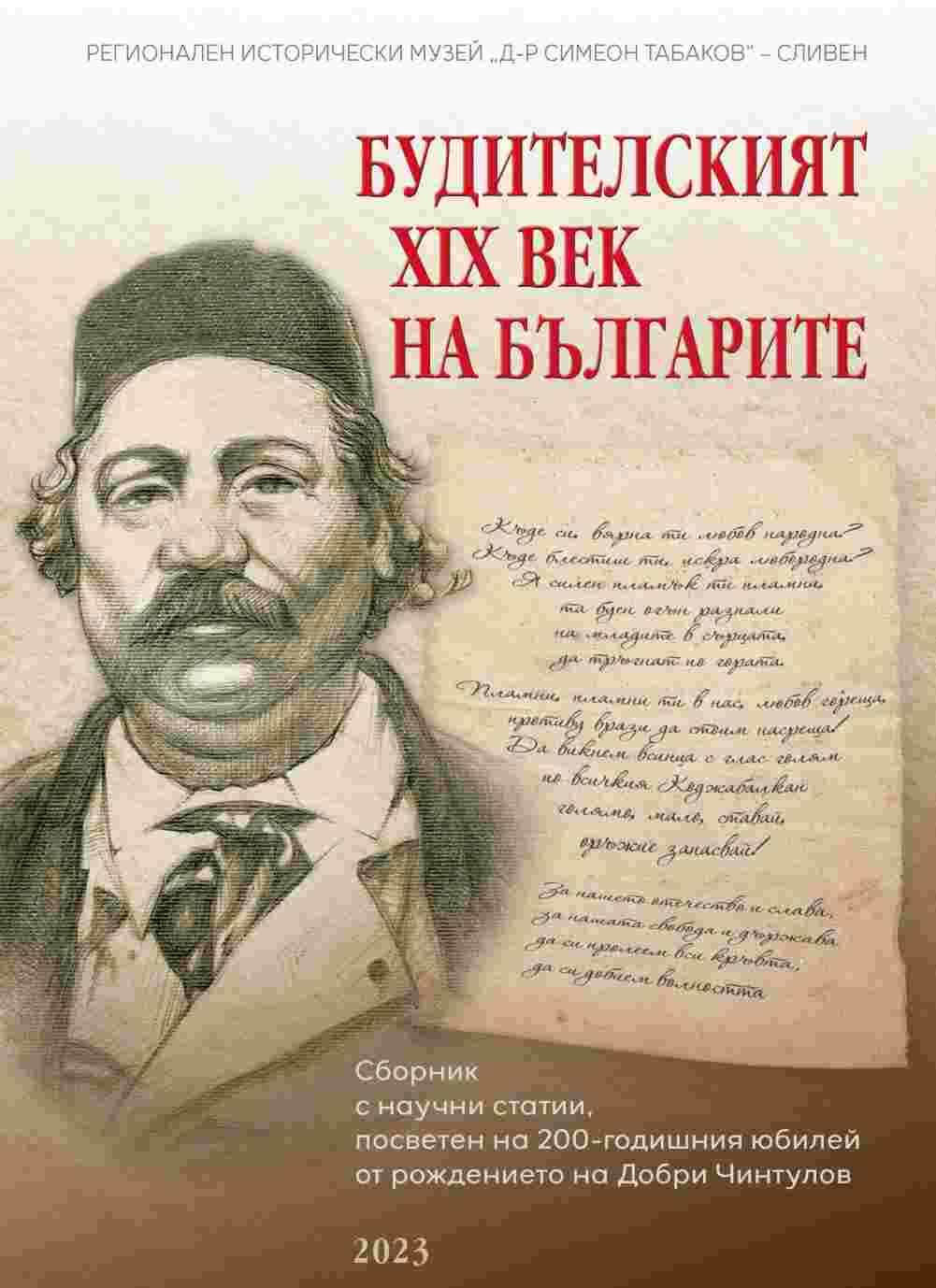
The current research paper examines the issue, related to the development of education in Sliven during the period of the Bulgarian Revival until the First World War. The topic is very broad encompasses a large timeframe and includes a number of events and processes. Particularly, it traces the creation, the school construction and the personalities, who have contributed to the rise of high-level education. The study begins with the development of the first schools in Sliven during the 19th century. An emphasis is put on the spread of girls' education, the establishment of boys’ and girls’ high schools as well as on the first vocational school. Traced is the activity of the church and city’s municipalities. Briefly examined are facts about notable teachers, involved in the education of the city during this period. There have been used multiple resources, aiming to give a clearer picture and accuracy about the education in Sliven within the period considered.
More...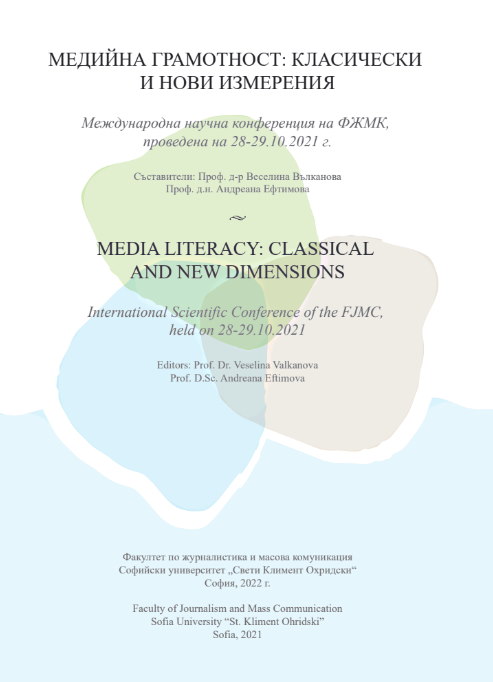
COVID-19 defiantly threw down the gauntlet to established teaching methods around the world. The report examines the impact of the pandemic on global education, drawing on experience and changes in foreign education systems. The study aims to seek answers to questions such as: To what extent has the Bulgarian education system and its participants shown a resource to respond to the crisis?; More benefits or harms bring the urgent transition from in-person to online training?; Does the „step-by-step” reformation have the potential to grow into a new kind of education?”, and many more. The report also considers the prerequisites for the failures/successes of distance learning, including teachers‘ and students‘ levels of digital and media literacy and the role of the media and social networks in asserting or questioning its effectiveness.
More...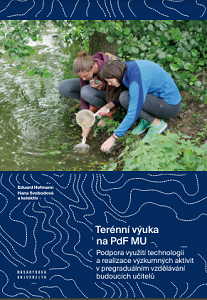
V české verzi nemá smysl uvádět celou podobu kurzu, protože je určený studentům a učitelům anglického jazyka. Z tohoto důvodu uvádíme v české verzi studijních materiálů jen jeho stručnou charakteristiku a základní zaměření.
More...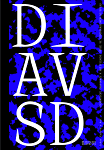
Návrh souboru pěti plakátů nabízí didaktické využití prezentace zajímavého a specifického fenoménu uranové těžby k seznámení se s širšími souvislostmi československých dějin v 50. letech 20. století.
More...